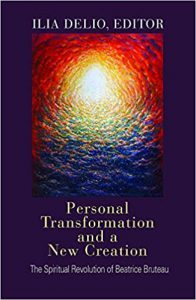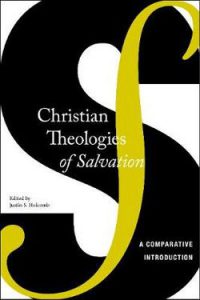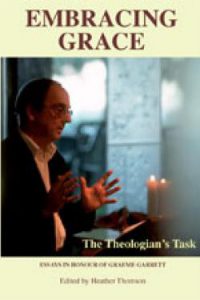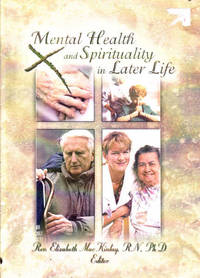Book Chapters

"The Ecstasy of Agape"
in Personal Transformation and New Creation, Edited by Ilia Delio, 2018.
This is a chapter I wrote on the beautiful writings of Beatrice Bruteau. It speaks of the awakening of communion consciousness, which awakens as we enter into the ground of our heart, recover our original memory of being one in Christ and stabilise in the organic identity of our participation in the ecstasy of the Trinity. To buy go to Book Depository.
“Salvation as Oneing” in Christian Theologies of Salvation: A Comparative Introduction, edited by Justin S. Holcomb, New York: New York University Press, 2017.
This chapter addresses the life and thoughts of the English mystic Julian of Norwich. Julian’s unique life of suffering shaped her understanding of theology, in which salvation is part of the journey of the individual, in which salvation occurs not as a result of humanity running from God, but as a great oneing between Divinity and humanity.
To read this chapter please go to: Garratt Publishing

"The Theologian as Spiritual Director” in Embracing Grace: The Theological's Task Edited by Heather Thompson and David Neville, 2009.
In a moving book that explores mysticism and resistance, Dorothee Sölle quotes a letter from fifteenth century German mystagogy, where a pastor urges a distraught person seeking consolation to wait patiently: “God will not be torn from the ground of your heart”, he reassures. The question of how this treasure buried in the heart may be unearthed is saturated in a flood of cries to God that evoke power, vulnerability and hope. God is portrayed as the love of a rushing fountain, the power of luminous radiance, the harmony of pure stillness, the peace in concord. God is hidden and yet starkly laid bare. The letter concludes: “thou silent cry no one can find thee who knows not how to let thee go.” Read more


“Symbol Ritual and Dementia” in Mental Health and Spirituality in Later Life, Edited by Elizabeth McKinlay. The Journal of Religious Gerontology Series. London: The Haworth Press, (2002), 77-90.
For a Christian who has lived life consciously in relationship with the divine, participating symbolically in the unfathomable depths of divine love drawing us to union, nurturing and strengthening this relationship, recognizing the first signs of dementia can engender paralyzing fear. The plea of the crucified Jesus remembering Psalm 22 becomes a likely response “My God my God why have you abandoned me?” (Mk 15:34). Feeling abandoned, confused, fragmented, desperate, we fear we will lose our memory of God. We don’t know if we will ever come to the place of acceptance and peace. We don’t know if we will ever be able to journey into this darkest night to dawn and experience the transformation that Psalm 22 describes. Throughout this paper I have shown, that although the fear of being considered nothing can be real in a society that has lost its sense of the divinity of our humanity, ultimately, we are not abandoned when we are most vulnerable. There is at the depth of our being an irrevocable relationship of oneing with divine love that can never be destroyed. If people with dementia are accompanied by carers sensitive to their inherently symbolic nature this relationship of oneing can be nourished and enriched….read more